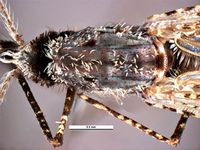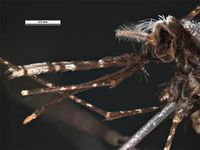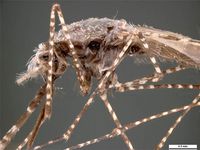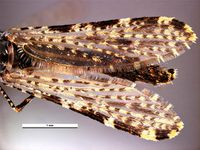Difference between revisions of "Anopheles farauti"
From Pestinfo-Wiki
| Line 1: | Line 1: | ||
| − | {{ | + | {{TaxLinks|LnkAnopheles}} |
{{LiteratureDB|{{PAGENAME}}|browse,benefialsN}} | {{LiteratureDB|{{PAGENAME}}|browse,benefialsN}} | ||
[[File:Anopheles_farauti_PaDIL136253a.jpg|250px|thumb|''Anopheles farauti'' female (click on image to enlarge it)<br/>Author(s): Simon Hinkley and Ken Walker, Museum Victoria<br/>Source: [http://www.padil.gov.au/pests-and-diseases/Pest/Main/136253 PaDIL]]] | [[File:Anopheles_farauti_PaDIL136253a.jpg|250px|thumb|''Anopheles farauti'' female (click on image to enlarge it)<br/>Author(s): Simon Hinkley and Ken Walker, Museum Victoria<br/>Source: [http://www.padil.gov.au/pests-and-diseases/Pest/Main/136253 PaDIL]]] | ||
Revision as of 20:42, 27 July 2014
| Literature database |
|---|
| 75 articles sorted by: |
| • year (recent ones first) |
| • research topics |
| • countries/regions |
| • list of natural enemies |

Anopheles farauti female (click on image to enlarge it)
Author(s): Simon Hinkley and Ken Walker, Museum Victoria
Source: PaDIL
Author(s): Simon Hinkley and Ken Walker, Museum Victoria
Source: PaDIL
Anopheles farauti Laveran
is found in Papua New Guinea, neibouring islands and Australia. It is an important malaria vector and belongs to a closely related group of various sibling species. A. farauti s.s. is found in brackish water.
- Other images of Anopheles farauti (PaDIL - click to enlarge)



